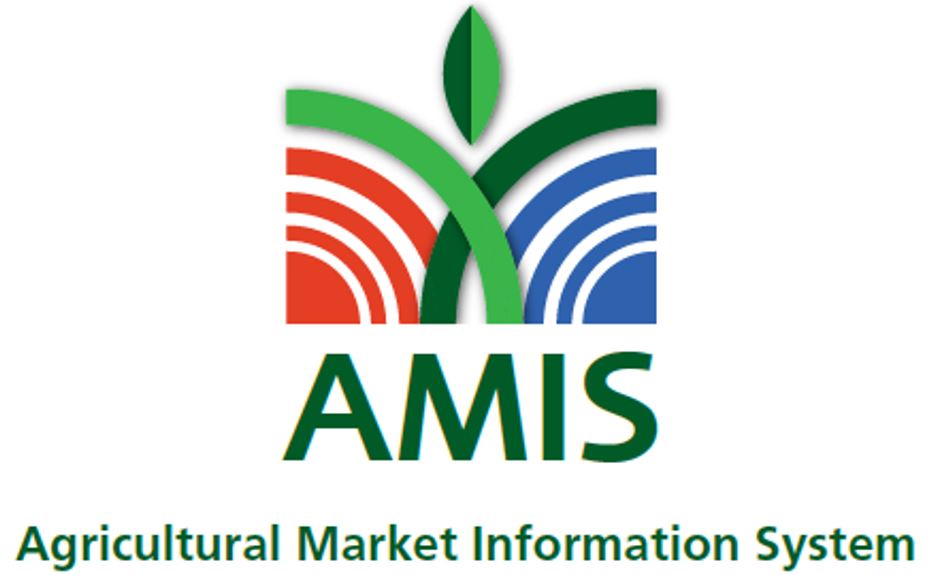The importance of transparency for the smooth functioning of global agricultural markets
G20 Agricultural Market Information System (AMIS)
Aktivierung erforderlich
Wir möchten Sie darauf hinweisen, dass nach der Aktivierung Ihre Daten an Youtube übermittelt werden.
Summary of topics and results
The Agricultural Market Information System (AMIS) was launched in 2011 by the Group of Twenty (G20) to prevent turmoil on international food markets. The system was created in response to the 2007–2008 and 2010–2011 world food price crises, when global agricultural markets became unbalanced and were subject to extreme fluctuations. The crises severely undermined the availability and affordability of food around the globe, resulting in political instability and social unrest in several countries.
AMIS was commissioned to improve global food market transparency and promote the dialogue among the principal trading countries of agricultural commodities. On this expert panel, members of the AMIS Secretariat as well as representatives of some AMIS participating countries discussed the significance of the initiative for the smooth functioning of global agricultural markets. Looking back at more than ten years of operation, the panel discussed whether AMIS has successfully delivered on its mandate, especially during recent crises such as the COVID-19 pandemic and the war in Ukraine that have led to global market distortions.
The panellists emphasised the high degree of concentration on international agricultural markets that makes the agri-food system vulnerable to external shocks. A disruption in any one of the key exporting countries thus has direct consequences on prices and volatility. According to the panel, AMIS has played a pivotal role in reducing information asymmetry within the markets, an important factor in decreasing trade policy restrictions, market volatility, and excessive speculation. By providing comprehensive information on supply-and-demand dynamics, AMIS has enabled market participants to make better informed decisions appropriate to the situation during periods of market uncertainties.
The recent expansion of AMIS to also cover fertilisers and vegetable oils were highlighted as extremely positive by several of the panellists. Many also noted how the experiences during the pandemic and the war in Ukraine and, more recently, the unrest affecting shipping in the Red Sea, highlight the importance of improving monitoring of trade logistics and international trade flows. Recent financial support from G20 and G7 partners has helped AMIS move towards this goal of decisively improving analytical capacities and early warning capabilities.
While the progress achieved over the past 12 years is commendable, AMIS continues to face challenges, particularly in terms of regular access to reliable information from its participating countries. AMIS country representatives on the panel therefore stressed the importance of participating countries actively backing and fully supporting the initiative. In this context, they particularly highlighted the crucial function of AMIS of providing a forum for member country analysts to regularly exchange views and discuss the market outlook. It was noted that both during the pandemic and since the outbreak of the war in Ukraine, AMIS members have met regularly and frequently, including within the framework of the AMIS Rapid Response Forum, which members viewed to be a strong indicator of the relevance of AMIS in stabilising global markets.
In conclusion, the panel stressed that while AMIS has gained considerable significance in the face of the recent crises, the important services it offers should not be taken for granted. The future of AMIS is in the hands of its member countries; they have to ensure that AMIS can continue to provide much-needed information and analyses.
Speakers
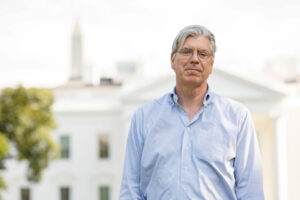
Joe Glauber
FacilitatorSenior Fellow / International Food Policy Research Institute (IFPRI) Show CV / Vita
CV / Vita
Joe Glauber is a Senior Research Fellow in the Markets, Trade, and Institutions Unit. His areas of interest are price volatility, global grain reserves, crop insurance, and trade.
Prior to joining IFPRI, Joe spent over 30 years at the U.S. Department of Agriculture, including as Chief Economist from 2008 to 2014. As Chief Economist, he was responsible for the Department’s agricultural forecasts and projections; oversaw climate, energy, and regulatory issues; and served as Chairman of the Board of Directors of the Federal Crop Insurance Corporation. From 2007 to 2009, Joe was the Special Doha Agricultural Envoy at the office of the U.S. Trade Representative where he served as Chief Agricultural Negotiator in the Doha talks. He served as economic adviser at the “Blair House agreements,” leading to the completion of the Uruguay Round negotiations.
Joe is the author of numerous studies on crop insurance, disaster policy, and US farm policy. In 2012, he was elected Fellow of the Agricultural and Applied Economics Association. He received his PhD in Agricultural Economics from the University of Wisconsin and holds an bachelor’s degree in Anthropology from the University of Chicago.
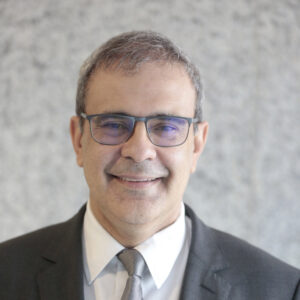
Eduardo Marques
PanellistAgricultural Attaché in the Embassy of Brazil in Berlin / Ministry of Agriculture and Livestock of Brazil Show CV / Vita
CV / Vita
Eduardo is an Agronomist (1992) and holds a Masters in Agronomy (1996). He has been working in the Ministry of Agriculture and Livestock of Brazil since September 1997, holding different positions, notably as the Secretary of Agricultural Policy, in charge of credit, rural insurance and price support. Since October 2022, he has served as the Agricultural Attaché in the Embassy of Brazil in Berlin.
Close CV / Vita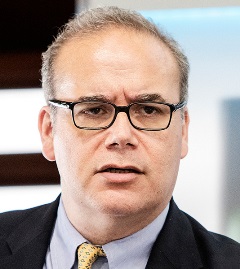
Máximo Torero Cullen
PanellistChief Economist / Food and Agriculture Organization of the United Nations (FAO) Show CV / Vita
CV / Vita
Mr. Máximo Torero Cullen is the Chief Economist of the Food and Agriculture Organization (FAO). He joined the Organization in January 2019 as Assistant Director-General for the Economic and Social Development Department. Prior to joining FAO, he was the World Bank Group Executive Director for Argentina, Bolivia, Chile Paraguay, Peru and Uruguay since November 2016 and before the Bank Mr. Torero led the Division of the Markets, Trade, and Institutions at the International Food Policy Research Institute (IFPRI). His major research work lies mostly in analyzing poverty, inequality, importance of geography and assets (private or public) in explaining poverty, and in policies oriented towards poverty alleviation based on the role played by infrastructure, institutions, and on how technological breakthroughs (or discontinuities) can improve the welfare of households and small farmers. His experience encompasses Latin America, Sub-Saharan Africa, and Asia.
Mr. Torero, a national of Peru, holds a Ph.D. and a Master’s degree in Economics from the University of California, Los Angeles (UCLA), and a Bachelor’s degree in Economics from the University of the Pacific, Lima, Peru. He is a professor on leave at the University of the Pacific, Perú, and an Alexander von Humboldt Fellow at University of Bonn, Germany, and has also published in top journals (QJE, Econometric Theory, AER-Applied Microeconomics, RSTAT, Labor Economics and many other top journals).
Mr. Torero has received in 2000 the Georg Foster Research Fellowship of the Alexander von Humboldt Foundation, won the Award for Outstanding Research on Development given by the Global Development Network, twice, in 2000 and in 2002, and received the Chevalier de l’Ordre du Mérite Agricole in 2014.
Close CV / Vita
Catherine Geslain-Lanéelle
PanellistDirector Strategy and Policy Analysis / European Commission - DG Agriculture and Rural Development Show CV / Vita
CV / Vita
Since 1 January 2023, Catherine Geslain-Lanéelle has been Director Strategy and policy analysis at DG AGRI (European Commission).
From 1 September 2020 to 31 December 2022, she was Director at the General Secretariat of the Council, responsible for Veterinary and Plant Health Questions, Food and Forestry. Between December 2019 and August 2020, she was Deputy Head of Cabinet of the EU Commissioner responsible for agriculture and rural development. From July 2018 to June 2019, she was the candidate of the EU for the position of Director general of the FAO. Between 2013 and 2018, she was responsible for the implementation of the CAP in France, in her capacity as Director general for Economic and Environmental Performance of Enterprises at the French Ministry of Agriculture, Food and Forestry. Between 2006 and 2013, she was Executive Director of the European Food Safety Authority (EFSA).
From 2003 to 2006, she was Regional Director of Agriculture and Forestry for the Ile de France region. Prior to that, she was Director General of the Food Department within the French Ministry of Agriculture and Fisheries. She also worked at the European Commission from 1991 to 1993 as Seconded National Expert at DG III (DG Industry and Internal Market) in the area of food safety.
She is an agronomist with a Master of Science from the Institut National Agronomique Paris-Grignon and from the Ecole Nationale du Génie Rural, des Eaux et des Forêts.
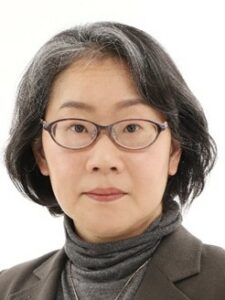
Ritsuko Yoneda
PanellistRitsuko Yoneda, Director for Multilateral Issues, Ministry of Agriculture, Forestry and Fisheries, Japan / Japan Ministry of Agriculture, Forestry and Fisheries Show CV / Vita
CV / Vita
Born and raised in Japan, Ms. Ritsuko Yoneda joined the Japan Ministry of Agriculture, Forestry and Fisheries in 1999. During her over 20 years of experience, she engaged in the crops, fisheries, and livestock policies. In the International Affairs Department, she led the team for various international fora including OECD, G7, G20 and AMIS. In 2023, she played a leading role during G7 Japan’s Presidency, especially in agenda setting and communique drafting. Specialized in international law and political science, she holds a Master of Arts in Law and Diplomacy from the Fletcher School of Tufts University, U.S.
Close CV / Vita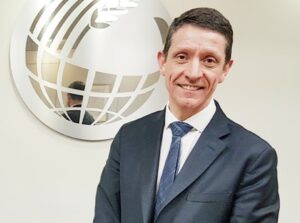
Arnaud Petit
PanellistExecutive Director / International Grains Council (IGC) Show CV / Vita
CV / Vita
Arnaud Petit was appointed Executive Director of the International Grains Council (IGC) in February 2018. IGC is an intergovernmental organisation based in London offering independent analysis on grains, oilseeds, rice and pulses markets to its member governments to promote international trade in grains. It also provides information to non-government subscribers.
IGC provides an important international platform for discussions between policy makers and the private sector. It also serves as the Secretariat for the Food Assistance Committee helping to facilitate networking within the donor community to improve the efficacy of food assistance.
From 2005- 2017 Mr. Petit worked at the European Farmers and agri-cooperatives Union (Copa-Cogeca), as Director for Commodities and Trade. He was also a Member of the Executive Committee of the European Technology Platform “Plants for the future” (2009-2017) and a Member of the Experts Group on EU-US trade negotiations at the European Commission (2014-2017).
From 2000 -2005 he served as Policy Advisor for European Affairs at the National Chamber for Agriculture in Paris, and Deputy Member of the European Economic and Social Committee (2000-2005).
He holds an M.A. in Agricultural Economics from the International Center for Advanced Mediterranean Agronomic Studies, Montpellier – France.

Denis Drechsler
PanellistAMIS Project Manager / Food and Agriculture Organization of the United Nations (FAO) Show CV / Vita
CV / Vita
Denis Drechsler is a Project Manager at the Food and Agriculture Organization of the United Nations (FAO), where he oversees the development and implementation of activities linked to the G20 Agricultural Market Information System (AMIS). Prior to joining FAO, Denis coordinated outreach and policy dialogue at the OECD Development Centre. Denis completed his graduate studies in political science and economics at Potsdam University, the Institute d’Etudes Politiques de Grenoble and the University of Wisconsin.
Close CV / Vita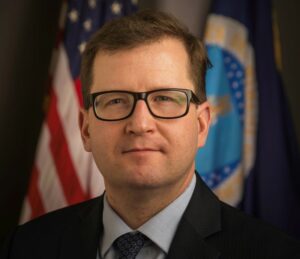
Seth Meyer
PanellistChief Economist / United States Department of Agriculture (USDA) Show CV / Vita
CV / Vita
Dr. Seth Meyer was appointed USDA’s Chief Economist in January of 2021, returning to USDA after two years. Prior to his return, Seth was a Research Professor and the Associate Director for the Food and Agricultural Policy Research Institute (FAPRI) at the University of Missouri. FAPRI is well known for its agricultural policy and market analysis, being called on by Congress and the United States Department of Agriculture (USDA) for its insight into commodity production, price, farm income and trade impacts from various agricultural policies including Farm Bill proposals, trade agreements and disruptions, and crop insurance.
Dr. Meyer was previously the head of the World Agricultural Outlook Board (WAOB) in the Office of the Chief Economist (OCE), the agency at USDA charged with bringing together USDA resources in the assessment of crops around the world. The OCE also publishes those finding in the ‘WASDE’ report which is closely watched by agricultural markets here and abroad.
Previously, Dr. Meyer served as an economist with the Food and Agricultural Organization (FAO) of the United Nations and as a visiting scholar at several research institutions around the world. Dr. Meyer grew up in eastern Iowa and has a Bachelor’s and Master’s degree from Iowa State University and a Ph.D. in Agricultural Economics from the University of Missouri.

